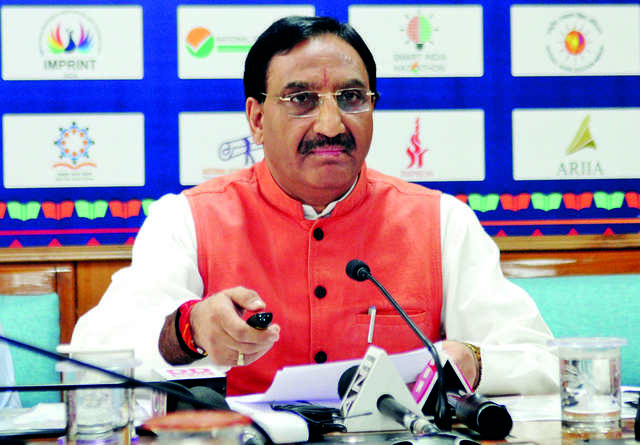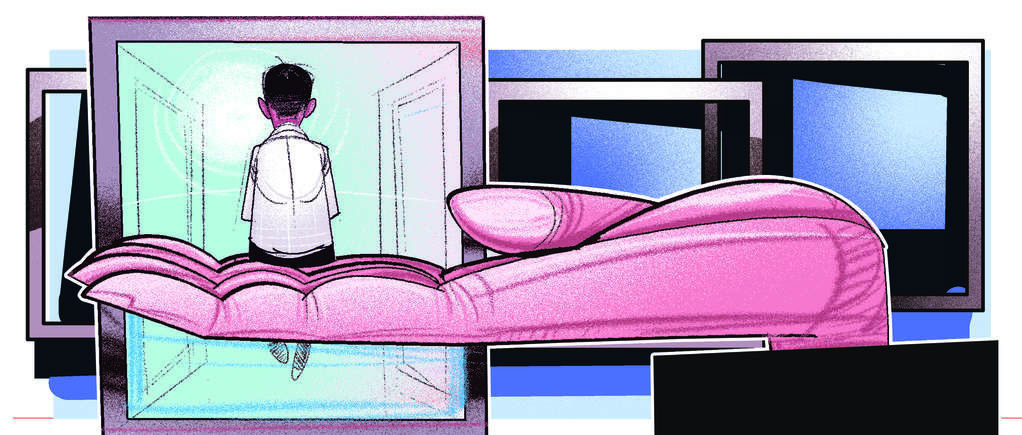View: NEP will envision a system rooted in Indian ethos
In one of my favourite English poems, Robert Frost said, “The woods are lovely, dark and deep, But I have promises to keep.” These lines have always inspired me. Since the citizens of India reposed massive faith in the leadership of Shri Narendra Modi, work in the ministry started on Day 1.
by ET CONTRIBUTORS
By: RAMESH POKHRIYAL
In one of my favourite English poems, Robert Frost said, “The woods are lovely, dark and deep, But I have promises to keep.” These lines have always inspired me. Since the citizens of India reposed massive faith in the leadership of Shri Narendra Modi, work in the ministry started on Day 1. The ministry mapped out its ‘Plan of Action’ for the first 100 days. The POA had access, equity, quality, affordability and accountability as the foundational pillars.
The landmark Central Educational Institutions (Reservation In teachers’ Cadre) Act, 2019 was passed in the first session of the Lok Sabha. Due to this advertisements have been issued to fill 92% teacher vacancies in centrally funded institutes. Multiple schemes for promoting quality education in higher education, along with research and innovation, were launched in the first 100 days, including PARAMARSH, ARPIT, STARS and STRIDE. Sixteen new Kendriya Vidyalayas were inaugurated, and foundation stones of four new Kendriya Vidyalayas were laid.
Next 200 Days: After the POA for the first 100 days, we set our eyes on the next 265 days’ plan, With an intention to understand the education sector, I travelled the length and breadth of the country, visiting Kendriya Vidyalayas to IITs and interacting with multiple stakeholders – from students, teachers, parents, professors and vice-chancellors to researchers across the country. My focus was on finalisation of the new education policy, promotion of research and innovation, internationalisation and conservation of Indian languages and Indian knowledge systems.

The remarkable conceptualisation, drafting and implementation of various schemes and initiatives helped us take a step forward towards the holistic development of not only students but also teachers. In 2019-20, through NISHTHA, 15,37,272 teachers and 1,69,743 heads and principals were trained to improve quality.
To enhance the learning of talented students, 30 students of the science group and 30 students of performing arts have been trained under DHRUV. DIKSHA is envisaged as “One Nation One Digital Portal” for school education, hosting 95,000 e-content in 15 languages. To smoothen the transition from school to college, a student induction programme, Deeksharamb, was launched and 2,23,012 students were benefited. For the access of quality yet affordable education to all students of higher education, eight public and seven private institutions have been declared as institutions of eminence. Eighty-four educational institutions have availed financial assistance for creation of educational infrastructure and R&D through HEFA. I have also initiated ‘Padhna Likhna Abhiyaan’ for adult education, under which students will now be engaged and encouraged to teach illiterate elderly people of their respective areas.
Last 65 Days: Amid Covid-19, as one of the largest education systems in the world with 1,000 universities, 45,000 colleges, 15 lakh schools, 33 crore students and more than one crore teachers, we are confronted with multiple challenges with the closure of our institutions. However, we worked on a war footing to ensure education does not suffer because of the unprecedented health emergency. The Ministry of Human Resource Development contributed ₹40 crore to the Prime Minister Cares Fund. Multiple webinars and videoconferences were held with vice-chancellors, professors, schoolteachers, students and parents to address the challenges being faced by them due to lockdown. Manodarpan is being launched to provide psychosocial support to students during and post Covid-19 in a comprehensive and multimodal manner.
Efforts were undertaken to promote and improvise digital learning of students through numerous e-learning courses. I thank Union finance minister Smt. Nirmala Sitharaman for announcing several initiatives to boost the education sector – including the launch of PM e-Vidya which unifies all efforts related to digital/online/on-air education and expansion of e-learning in higher education by liberalising open, distance and online education regulatory framework.
Next year’s plans: Soon the government will announce the new education policy, which envisions an education system rooted in Indian ethos that contributes directly to transforming India sustainably into an equitable and vibrant knowledge society, by providing high-quality education to all and thereby making India a global knowledge superpower. Detailed plans in the form of EQUIP and QUEST have been worked out for the implementation of the policy. Under the dynamic and able leadership of our Prime Minister, HRD ministry is committed to creating a New India and making concerted efforts to ensure students' access to quality and affordable education from preschool to grade 12 to higher education, including vocational education, and achievement of 50% gross enrolment ratio in higher education by 2030.
(The writer is Union human resources development minister)